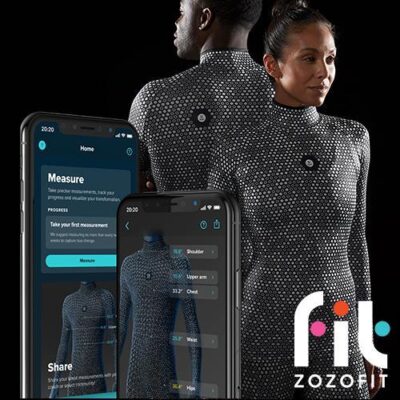How Pluralsight wants everyone to access the skills they need to thrive in the digital age.
Tech Trends went back to the Silicon Slopes of Salt Lake City last week to check out this year’s Pluralsight LIVE. After last year’s amazing line-up which included Michelle Obama, expectations were pretty high, but the conference managed take a leaf from the former FLOTUS’ own book and reach even higher, delivering – among other things – an inspirational fireside chat with the world’s youngest-ever Nobel Peace Prize laureate, Malala Yousafzai
Pluralsight 2018 featured an inspirational fireside chat with the world’s youngest-ever Nobel Peace Prize laureate, Malala Yousafzai Share on X![]()
One of my favourite Malala quotes ever – and I might be paraphrasing a bit – goes something along the lines of “nothing scares an extremist or dictator as much as a girl with a book. She told Pluralsight CEO Aaron Skonnard that she often wished governments around the world would realize the power of education to empower women as keenly as the Taliban has. “They understood it perfectly, which is why they tried to stop us going to school.” In today’s digital world, a logical extrapolation of that would be that despots should be even more scared of girls with computers.
Technology and education are incredibly empowering forces, and giving people all over the world access to the resources they need to develop technology skills would unlock amazing possibilities for everyone.
“We’re committed to help close the opportunity gap, and we’re doing it by addressing it at the root cause by magnifying the efforts of successful non-profits,” Skonnard told the attendees.
This is something he’s is very passionate about: His father first taught him to code when he was eight years old and he believes that every child should have access to the sort of opportunities that those skills unlocked for him throughout his life.
![]()
After their IPO in May, Pluralsight is in the enviable position to have over $200 million on its balance sheet to invest and grow the company, and social responsibility remains a cornerstone of that future growth and investment strategy. Which is why one of Pluralsight’s major announcements made sound strategic sense as well as chiming with the company’s philanthropic mission.
![]()
In addition to partnering with non-profits to amplify their mission by providing them with discounted access to its platform, the Pluralsight One Fund will also give a $1.5 million grant to Code.org over three years to deepen opportunities for girls and students of color to access computer science education. Students taking Code.org’s Computer Science Principles course will also have the chance to gain free access to Pluralsight’s courses to further their learning.
The Pluralsight One Fund will also give a $1.5 million grant to Code.org Share on X![]()
Joining Skonnard on stage, Code.org CEO and Founder Hadi Partovi said that the problem that lies at the core of the digital skills crisis today is that formal education systems are simply not designed to keep up with the pace of technological change we’re experiencing. “As a society we’re not prioritizing technology enough. We’re not starting early enough, it’s not seen as a basic skill like reading, writing or maths,” he added.
Yet there has definitely been progress, much of it driven by organizations like Code.org which teamed up with the College Board to make the AP (Advanced Placement) Computer Science course more accessible. This year, out of the 135,992 who took the course, 38,195 were female. So while girls still make up only 28% of students taking the AP exams, females and under-represented minorities were among the fastest growing groups. African-American students rose 44 percent to 7,301, Hispanic and Latino participation gained 41 percent to 20,954 and female participation rose 39 percent compared to last year.
As a society we’re not prioritizing technology enough Share on X![]()
Among all the high-level tech companies attending the Pluralsight conference there seemed to be a clear understanding that addressing these issues – getting more people from all backgrounds to learn – and keep learning – those skills is not only about promoting equality of opportunity, but crucial to building a sustainable (and profitable) business strategy.
Formal education systems are simply not designed to keep up with the pace of technological change we’re experiencing Share on XThis is easier said than done, however, as in order to do that, companies need to – in addition to providing access to learning tools and content – create a culture of learning which tolerates failure. As Oracle President of Product Development, Thomas Kurian put it during his keynote, building the future and being at the technology leading edge requires a sense of mission which goes beyond any individual product:
“If you don’t have at least 10% of products failing it means you’re not pushing hard enough, failure is part of the organic development process.”
![]()
“Agile is a culture,” agrees Cody Sanford, EVP & CIO of T-Mobile, which is another of Pluralsight’s Fortune 500 customers. Sanford believes it is imperative for companies like his to also create flexible paths for new talent to gain the skills they need, and constantly keep them updated as strategy evolves.
![]()
Which is where Pluralsight’s latest product announcement fits in; Role IQ gives a clear path to determining a technology professional’s expertise level by deploying their machine learning algorithms Iris. Where the company’s previous product – Skill IQ, unveiled at last year’s conference – measures an individual’s proficiency in a specific software technology with a short five-minute test involving about 20 questions, Role IQ measures a collection of skills an individual needs to be successful in their role.
![]()
Nate Walkinshaw, Chief Experience Officer at Pluralsight said this will allow the platform to offer a highly personalized learning experience. “Iris will constantly tailor content based on the way each individual learns, but also benchmarking their existing skills against others in the industry and suggesting ways in which it would be most advantageous for them to develop further. It tells you where the gaps are.”
![]()
At the time of launch, over 120 skill assessments were already available across a variety of technologies such as Security Analyst, Unity Game Developer, Server Administrator or Node Web Developer. These also include three roles specifically tailored for Pluralsight’s launch partner Microsoft Azure.
Iris will constantly tailor content based on the way each individual learns, but also benchmarking their existing skills against others in the industry Share on X![]()
Jeff Sandquist, GM of Cloud and AI Developer Relations at Microsoft “This is not your mother and father’s Microsoft” much more flexible and dynamic, which also means being a lot more agile in supporting skills within the developer community. “Using cloud, people have a choice. The only way we can earn their business is by having the skills to deliver value. But how do you get your people trained, and how do you do that consistently? How do you assess that? It’s what Microsoft is looking to solve with Role IQ,” Sandquist added.
![]()
Alice Bonasio is a VR Consultant and Tech Trends’ Editor in Chief. She also regularly writes for Fast Company, Ars Technica, Quartz, Wired and others. Connect with her on LinkedIn and follow @alicebonasio and @techtrends_tech on Twitter.








